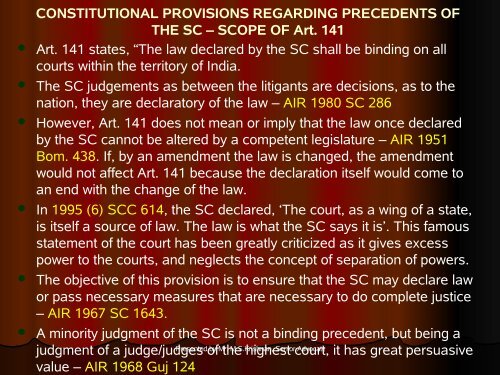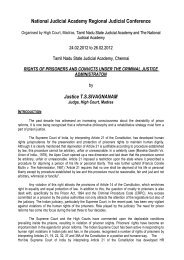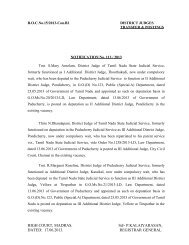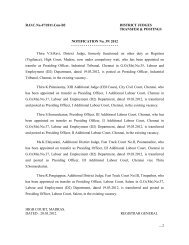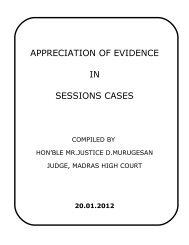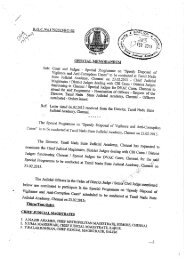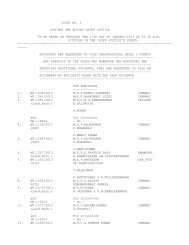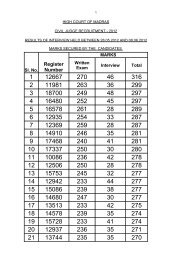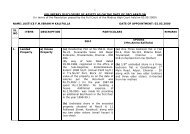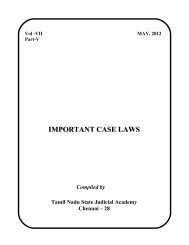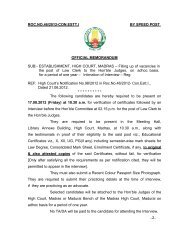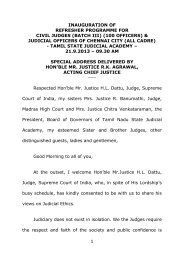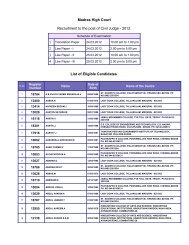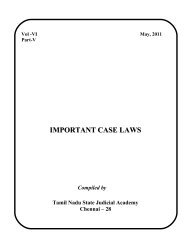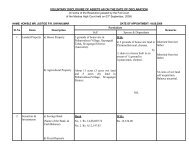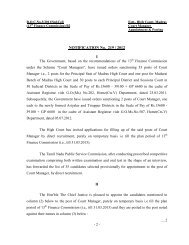LAW OF PRECEDENTS - Madras High Court
LAW OF PRECEDENTS - Madras High Court
LAW OF PRECEDENTS - Madras High Court
You also want an ePaper? Increase the reach of your titles
YUMPU automatically turns print PDFs into web optimized ePapers that Google loves.
CONSTITUTIONAL PROVISIONS REGARDING <strong>PRECEDENTS</strong> <strong>OF</strong><br />
THE SC – SCOPE <strong>OF</strong> Art. 141<br />
Art. 141 states, “The law declared by the SC shall be binding on all<br />
courts within the territory of India.<br />
The SC judgements as between the litigants are decisions, as to the<br />
nation, they are declaratory of the law – AIR 1980 SC 286<br />
However, Art. 141 does not mean or imply that the law once declared<br />
by the SC cannot be altered by a competent legislature – AIR 1951<br />
Bom. 438. If, by an amendment the law is changed, the amendment<br />
would not affect Art. 141 because the declaration itself would come to<br />
an end with the change of the law.<br />
In 1995 (6) SCC 614, the SC declared, ‘The court, as a wing of a state,<br />
is itself a source of law. The law is what the SC says it is’. This famous<br />
statement of the court has been greatly criticized as it gives excess<br />
power to the courts, and neglects the concept of separation of powers.<br />
The objective of this provision is to ensure that the SC may declare law<br />
or pass necessary measures that are necessary to do complete justice<br />
– AIR 1967 SC 1643.<br />
A minority judgment of the SC is not a binding precedent, but being a<br />
judgment of a judge/judges Presented of by Mr. the M.S.Krishnan, highest Senior court, Advocate<br />
it has great persuasive<br />
value – AIR 1968 Guj 124


